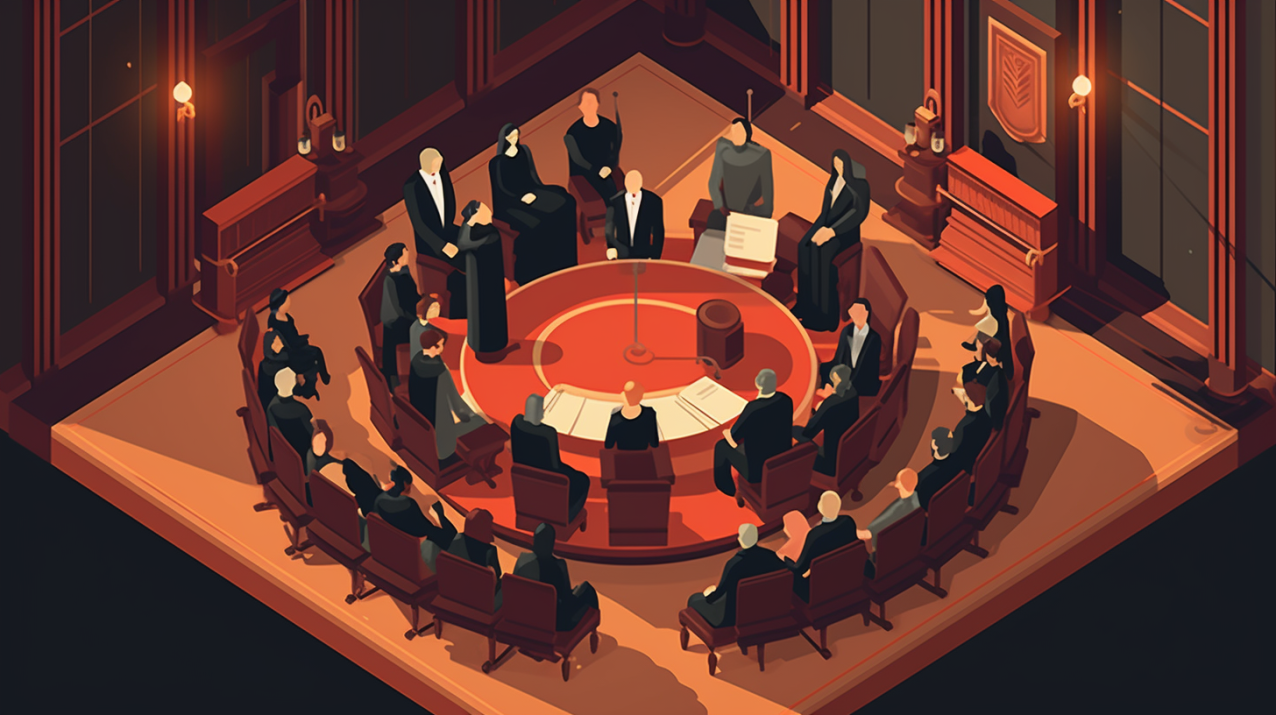Are you in need of legal advice regarding contracts? Look no further than Contract Law Services. Our team of experienced attorneys is ready to provide you with the expert guidance and reassurance you need. Whether you are dealing with a business contract, employment agreement, or any other legal paperwork, we are here to help. With our extensive knowledge of contract law, we will address your common concerns and provide valuable insights to ensure you make informed decisions. Don’t hesitate to reach out to us today. Call the number listed on our website and take the next step in seeking prompt assistance.
Overview of Contract Law Services
Contract law services are an essential aspect of legal support for businesses and individuals alike. These services encompass a wide range of legal assistance pertaining to contracts, ensuring that all parties involved are protected and have their rights upheld. From contract review and drafting to dispute resolution and termination, contract law services provide expert guidance and support throughout the entire contract lifecycle. By leveraging the expertise and experience of contract law professionals, individuals and businesses can navigate the complexities of contract law with confidence.
Benefits of Contract Law Services
Expertise and Experience
One of the key benefits of contract law services is the expertise and experience that professionals bring to the table. Contract law can be complex, nuanced, and subject to change, requiring a deep understanding of legal principles and precedents. By engaging the services of a contract law professional, you can leverage their knowledge and expertise to navigate intricate legal issues and ensure that your contracts are comprehensive, enforceable, and in compliance with relevant laws and regulations.
Risk Mitigation
Another crucial benefit of contract law services is risk mitigation. Contracts involve the exchange of promises and obligations, and any oversight or ambiguity can lead to costly disputes or legal repercussions. Contract law professionals have an in-depth understanding of potential risks and pitfalls, helping you identify and mitigate them before they escalate into significant problems. By securing the services of a contract law professional, you can minimize your exposure to legal risks and protect your interests.
Legal Compliance
Contract law services also play a vital role in ensuring legal compliance. Laws and regulations vary across jurisdictions and industries, making it crucial to stay in line with applicable legal requirements when drafting and executing contracts. Contract law professionals are well-versed in the intricacies of local and industry-specific regulations, enabling them to draft contracts that comply with all relevant legal standards. By utilizing contract law services, you can ensure that your contracts are legally sound and avoid potential penalties or voiding of agreements due to non-compliance.
Confidentiality
Confidentiality is a paramount consideration in many contractual relationships. Certain contracts involve the exchange of sensitive information or trade secrets, necessitating strict confidentiality provisions. Contract law services can provide the necessary expertise to ensure that your contracts include robust confidentiality obligations, protecting your proprietary information from unauthorized disclosure. By engaging a contract law professional, you can safeguard your confidential data and enjoy peace of mind knowing that your sensitive information is protected.
Cost Savings
While engaging contract law services may seem like an additional expense, it can actually lead to significant cost savings in the long run. A well-drafted contract can help prevent disputes and minimize the need for costly litigation or arbitration. By having a contract law professional review and draft your contracts, you can identify and resolve potential issues upfront, ultimately saving you time, money, and resources. Moreover, contract law services can help you negotiate favorable terms and conditions, ensuring that your contracts are balanced and beneficial to all parties involved.

Types of Contract Law Services
Contract Review and Drafting
One of the primary services offered by contract law professionals is contract review and drafting. Contracts are legally binding agreements that outline the rights, obligations, and responsibilities of the parties involved. Contract law experts can meticulously review existing contracts to identify any potential legal issues, ambiguities, or gaps. They can also draft new contracts from scratch, ensuring that all necessary elements are included and that the language is clear, concise, and legally enforceable.
Contract Negotiation
Contract negotiation is a critical stage in the contract lifecycle, and contract law professionals can play a pivotal role in this process. Negotiating the terms and conditions of a contract requires careful consideration and a comprehensive understanding of the legal implications. Contract law experts can assist in negotiating favorable terms, protecting your interests, and ensuring that the final contract accurately reflects the intentions of all parties involved. Their expert guidance can help you navigate complex negotiations and achieve mutually beneficial outcomes.
Contract Dispute Resolution
Disputes may arise during the course of a contractual relationship, and contract law services can be instrumental in resolving these conflicts. Contract law professionals have experience in alternative dispute resolution methods such as mediation and arbitration, which can often provide more efficient and cost-effective solutions compared to litigation. By engaging contract law services, you can avail yourself of expert advice and representation to navigate contract disputes and seek fair and equitable resolutions.
Contract Termination and Breach
In some instances, it becomes necessary to terminate a contract or address a breach of contract. Contract law services can guide you through this process, ensuring that you adhere to legal requirements and protect your rights. Professionals in this field can assess the circumstances surrounding the termination or breach, provide guidance on available remedies, and take appropriate legal action if necessary. By relying on contract law services, you can ensure that your contract is terminated or breached in accordance with the law and minimize potential risks.
Contract Modification and Amendment
Contracts are not static documents and may need to be modified or amended to adapt to changing circumstances or unforeseen events. Contract law services can assist in the modification or amendment process, ensuring that any changes are legally valid and properly documented. Whether it involves revising contract terms, adjusting pricing structures, or updating contractual obligations, contract law professionals can provide the necessary expertise to navigate these changes effectively.
Importance of Contract Law Services for Businesses
Contract law services are of utmost importance for businesses, regardless of their size or industry. Contracts are the foundation of business relationships, setting forth the expectations and obligations of all parties involved. By utilizing contract law services, businesses can ensure that their contracts are legally enforceable and tailored to their specific needs. Moreover, contract law professionals can help businesses mitigate risks, resolve disputes, and achieve favorable outcomes, thereby safeguarding their interests and fostering long-term success.
In the business realm, contracts govern a wide array of transactions and relationships. Whether it involves supplier agreements, employment contracts, joint ventures, or licensing arrangements, contracts are the cornerstone of business operations. Engaging contract law services allows businesses to navigate the complexities of these contracts, ensuring that their rights and interests are protected at all times. From drafting comprehensive agreements to providing expert advice on legal compliance, contract law professionals play a crucial role in driving business success.
Key Considerations when Choosing Contract Law Services
When selecting contract law services for your specific needs, several key considerations should be taken into account to ensure a successful partnership. By keeping these considerations in mind, you can make an informed decision and choose a contract law professional who aligns with your unique requirements.
Specialization and Experience
First and foremost, it is important to assess the specialization and experience of the contract law professional or firm. Contract law is a broad field, and different professionals may have expertise in specific industries or types of contracts. For example, if you require assistance with real estate contracts, you may want to engage a contract law professional with experience in real estate law. Evaluating their specialization and relevant experience ensures that you are working with someone who understands your specific needs.
Reputation and Track Record
The reputation and track record of a contract law professional or firm are also crucial factors to consider. Seek recommendations from trusted sources, such as colleagues, friends, or other professionals in your industry, to gauge the reputation of potential service providers. Additionally, conduct online research and read reviews or testimonials from previous clients. A positive reputation and a proven track record indicate that the contract law professional provides reliable and high-quality services.
Client References
Requesting client references is an effective way to gain insights into the capabilities and performance of a contract law professional. Speaking with previous clients allows you to understand their experiences and satisfaction level, as well as any challenges or successes they encountered. It provides an opportunity to ask specific questions about the contract law professional’s communication style, responsiveness, and overall effectiveness. Client references can offer valuable firsthand information that helps you assess the suitability of a contract law professional for your needs.
Transparent Pricing
Pricing is a crucial consideration when choosing contract law services. It is essential to have a clear understanding of the fee structure and pricing model employed by the contract law professional or firm. Seek transparent pricing that outlines the cost of services, potential additional charges, and any billing arrangements. Clear pricing helps avoid future disputes and allows you to assess the overall affordability and value for money offered by the contract law professional.
Communication and Availability
Effective communication and availability are key factors in maintaining a successful working relationship with a contract law professional. It is important to determine their communication preferences and responsiveness to ensure that your needs and expectations align. Consider whether the contract law professional is accessible and can accommodate your desired level of involvement in the contract process. Open lines of communication and regular updates foster a collaborative environment and ensure that your concerns and priorities are effectively addressed.
Common Legal Concerns Addressed by Contract Law Services
Contract law services address a wide range of legal concerns that individuals and businesses encounter in contract-related matters. These concerns include:
Contract Formation
One of the primary concerns addressed by contract law services is the proper formation of contracts. Contract law professionals ensure that all necessary elements, such as offer, acceptance, consideration, legal capacity, and consent, are present for a contract to be valid. They provide guidance on the essential components of a contract and ensure that all legal requirements are met during the formation process.
Contract Interpretation
Ambiguity in contract language can lead to misunderstandings and disputes. Contract law services assist in interpreting contractual provisions and clarifying any ambiguous or vague language. By providing expert guidance, contract law professionals can help parties understand their rights, obligations, and potential areas of disagreement, facilitating effective contract performance and reducing the likelihood of disputes.
Contract Enforceability
The enforceability of contracts is a significant concern addressed by contract law services. Contract law professionals ensure that all contractual terms comply with applicable laws and regulations, making them legally enforceable. They assess the validity of contract provisions and clauses to safeguard the interests of their clients and maximize the likelihood of successful contract enforcement.
Breach of Contract
When a party fails to fulfill its contractual obligations, a breach of contract occurs. Contract law services assist in addressing breaches of contract, whether through negotiation, mediation, or legal action. Contract law professionals can assess the nature and impact of a breach, advise on available remedies, and guide clients through the process of seeking resolution or pursuing appropriate legal action.
Contract Termination
In some cases, parties may wish to terminate a contract prematurely. Contract law services play a crucial role in ensuring that contract termination is conducted in compliance with legal requirements and contractual provisions. Contract law professionals guide parties through the process, notifying the other party of termination, and addressing any potential legal consequences or obligations arising from the contract termination.

Understanding the Elements of a Valid Contract
To comprehend the importance and role of contract law services, it is essential to understand the elements of a valid contract. Contract law professionals are well-versed in these elements and employ their knowledge to assist individuals and businesses in creating legally enforceable contracts. The key elements of a valid contract include:
Offer and Acceptance
A valid contract requires a clear offer by one party and an unequivocal acceptance by the other party. An offer constitutes a proposal to enter into a contract, while acceptance indicates the other party’s agreement to the terms of the offer. Contract law services ensure that offers and acceptances are properly communicated and documented, establishing a solid foundation for contract formation.
Consideration
Consideration refers to the value exchanged between parties to a contract. It can be a promise, an act, a forbearance, or a combination thereof. Contract law professionals ensure that contracts include sufficient consideration as per legal requirements, validating the contractual relationship and ensuring that both parties have something of value at stake.
Legal Capacity
For a contract to be valid, all parties involved must have the legal capacity to enter into a contract. This typically means that the parties must be of legal age and possess the mental capacity to understand the terms and consequences of the contract. Contract law services verify the legal capacity of the parties, ensuring that contracts are not entered into by individuals who lack the ability to understand the implications of their actions.
Consent
Consent is a fundamental element of a valid contract. It implies that the parties have willingly and voluntarily agreed to enter into the contract without duress, fraud, undue influence, or mistake. Contract law professionals ascertain that consent is freely given by all parties, ensuring that contracts are not tainted by coercion or misrepresentation.
Legal Purpose
Contracts must have a legal purpose to be valid. They cannot be entered into for illegal activities or contrary to public policy. Contract law services ensure that contracts are not in violation of any applicable laws or regulations, preserving the integrity and enforceability of the agreements.
Guidelines for Drafting Effective Contracts
Drafting effective contracts is crucial for ensuring that the rights and obligations of all parties are clearly defined and protected. Contract law services provide guidelines for creating contracts that achieve these goals, fostering successful contractual relationships. The following guidelines are often employed by contract law professionals:
Clear and Concise Language
Effective contracts use language that is clear, concise, and easily understandable. Ambiguities or vague terms can lead to misunderstandings and disputes. Contract law professionals ensure that contracts are drafted in plain language, avoiding unnecessary legalese and providing clarity to the parties involved.
Specific Terms and Definitions
Contracts should include specific terms and well-defined definitions to avoid confusion. Vagueness or ambiguity in contract provisions can lead to differing interpretations and contractual disagreements. Contract law services assist in clearly defining terms and providing comprehensive definitions that leave no room for misinterpretation.
Compliance with Applicable Laws
Contracts must adhere to all applicable laws and regulations to be enforceable. Contract law professionals ensure that contracts comply with relevant legal requirements, including industry-specific regulations, privacy laws, consumer protection laws, and more. By ensuring legal compliance, contract law services safeguard the interests of their clients and mitigate potential risks.
Identifying Parties and Roles
Contracts should clearly identify all parties involved and their respective roles and responsibilities. By explicitly stating the identities and roles of the parties, contract law professionals facilitate effective contract execution and minimize the chances of confusion or dispute.
Termination and Breach Remedies
Contracts should address how termination and breaches will be handled. Contract law professionals provide guidance on including termination clauses and appropriate remedies for breach of contract. Well-drafted termination and breach remedies provide clarity and establish a framework for resolution in the event of non-performance or violation.

Resolving Contract Disputes through Mediation
Contract disputes can disrupt business relationships, result in financial loss, and strain resources. Mediation, one of the methods employed by contract law services, offers a viable and efficient approach to resolving contract disputes. Mediation involves a neutral third-party mediator who facilitates communication and negotiation between the parties in a structured and non-adversarial manner.
Benefits of Mediation
Mediation offers several benefits compared to traditional litigation or arbitration:
- Speed and Efficiency: Mediation tends to be faster and less time-consuming compared to litigation, which can take months or years to reach a resolution. Mediation sessions can be scheduled promptly, allowing parties to address disputes quickly and efficiently.
- Cost-Effectiveness: Mediation often proves more cost-effective than litigation or arbitration. It eliminates extensive legal fees, court costs, and other expenses associated with the traditional adversarial process.
- Confidentiality: Mediation proceedings are confidential, ensuring that sensitive information shared during discussions remains secure and does not become public record.
- Preserving Relationships: Mediation fosters open communication and allows parties to maintain control over the outcome of the dispute. By working together to find a mutually acceptable resolution, the parties can often preserve their business relationship and avoid irreparable damage.
Mediation Process
The mediation process typically involves the following steps:
-
Selection of a Mediator: Parties agree on selecting a neutral mediator who is experienced and knowledgeable in contract law and dispute resolution. The mediator facilitates productive discussions and guides the parties towards a resolution.
-
Initial Meeting: The mediator holds an initial meeting with all parties involved to explain the mediation process, set ground rules, and establish an environment of open communication and mutual respect.
-
Information Exchange: Each party presents their perspective on the dispute, identifies key issues, and provides supporting documentation or evidence. The mediator ensures that all parties have an equal opportunity to be heard.
-
Open Discussion and Negotiation: The mediator facilitates structured discussions, allowing parties to clarify their positions, ask questions, and explore potential solutions. Negotiation sessions may involve joint meetings or separate caucuses with each party.
-
Mutual Agreement and Resolution: Through the mediator’s guidance, parties work towards a mutually acceptable resolution, with the aim of finding a win-win outcome. Once an agreement is reached, it is typically memorialized in a written document.
Role of Mediator
The mediator plays a crucial role in the mediation process. Their responsibilities include:
- Facilitating Communication: The mediator ensures that parties have the opportunity to express their views, concerns, and interests. They facilitate constructive dialogue and help parties understand each other’s perspectives.
- Managing Emotions and Conflict: Mediators assist in managing emotions and diffusing conflict during the mediation process. They help create a safe and collaborative environment that fosters effective problem-solving.
- Providing Legal Guidance: Although mediators are neutral and do not provide legal advice, they can provide general information about the legal principles relevant to the dispute. This helps parties understand the legal implications of their positions and potential outcomes if the dispute were to proceed to litigation.
- Guiding Negotiations: Mediators guide parties through negotiation and help them uncover underlying interests and potential solutions. They assist in generating options that meet the needs and concerns of all parties involved.
Preparing for Mediation
To make the most of the mediation process, parties should consider the following steps:
-
Understand the Mediation Process: Parties should familiarize themselves with the mediation process, including the roles and responsibilities of the mediator. Understanding the process helps manage expectations and facilitates active participation.
-
Gather Relevant Documents and Information: Parties should gather all relevant documents, contracts, correspondence, and any other evidence that may be useful during the mediation process. Organizing this information beforehand allows for a more efficient and productive discussion.
-
Define Objectives and Desired Outcomes: Parties should have a clear understanding of their interests, concerns, and desired outcomes. Defining objectives in advance helps parties communicate their preferences effectively and increases the chances of reaching a satisfactory resolution.
-
Assess Best Alternatives: It is prudent to evaluate alternative options to mediation, such as litigation or arbitration, and weigh their potential benefits and drawbacks. This analysis allows parties to make informed decisions about whether mediation is the most viable and advantageous method of dispute resolution.
-
Consult with Legal Counsel: While mediation is a voluntary process that does not require legal representation, it can be beneficial to consult with legal counsel beforehand. Legal professionals can provide guidance on the legal implications of various options and assist in preparing for the mediation process.
Negotiating Win-Win Solutions
The goal of mediation is to achieve a win-win solution, addressing the interests and concerns of all parties involved. To negotiate effectively in mediation, consider the following strategies:
-
Active Listening: Actively listen to the other party’s perspective and ensure that they feel heard and understood. Pay attention to their interests and concerns, which can help uncover potential areas of agreement.
-
Focus on Interests: Identify underlying interests rather than getting caught up in rigid positions. By understanding the underlying motivations and goals of all parties, mutually beneficial solutions can be explored.
-
Brainstorming Solutions: Encourage open brainstorming sessions, where parties generate and discuss potential solutions to the dispute. This creative process can lead to innovative and mutually acceptable outcomes.
-
Flexibility and Compromise: Maintain a flexible mindset and be open to compromise. Successful mediation often requires parties to find common ground and be willing to make concessions to reach a resolution.
-
Problem-Solving Approach: Adopt a problem-solving approach rather than an adversarial mindset. The goal of mediation is to find collaborative solutions that promote the interests of all parties involved.
Conclusion
Contract law services play a vital role in ensuring that contracts are legally sound, protect the rights and interests of all parties involved, and facilitate successful business relationships. From contract review and drafting to dispute resolution and termination, contract law professionals provide expertise and guidance throughout the entire contract lifecycle. By engaging contract law services, individuals and businesses can benefit from expertise and experience, risk mitigation, legal compliance, confidentiality, and cost savings. When choosing contract law services, consider factors such as specialization, reputation, client references, transparent pricing, and communication and availability. Contract law services address common legal concerns, including contract formation, interpretation, enforceability, breach, and termination. Understanding the elements of a valid contract and guidelines for drafting effective contracts is essential for creating legally enforceable agreements. Mediation, facilitated by contract law services, offers an efficient and collaborative approach to resolving contract disputes. By employing negotiation strategies that focus on interests, brainstorming solutions, and promoting flexibility and compromise, parties can reach win-win outcomes. With the assistance of contract law services, individuals and businesses can navigate the complexities of contract law with confidence, ensuring their contracts are comprehensive, enforceable, and protective of their interests.






















